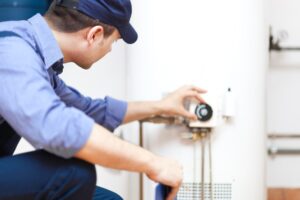The flow of air should travel easily throughout your home. However, if you’re experiencing indoor air quality issues, poor ventilation may be to blame. Optimizing your home in Alice, Texas, for efficient airflow can save you money on utility costs and create more comfortable living spaces for your family. Read on to learn how you can optimize your home’s airflow for improved efficiency and comfort.
Regularly Replace Your HVAC System’s Air Filter
Changing your HVAC system’s air filter is one way you can improve your home’s airflow. When the air filter becomes clogged with dirt, dust and other pollutants, these obstructions limit your HVAC system’s ability to work correctly. As a result, it’ll impact efficiency and comfort.
HVAC system manufacturers generally recommend installing a new filter once every season or approximately every three months. If you have pets in the home or family members with asthma or allergies, replace the air filter more often.
Run the HVAC Fan Only When Necessary
You may think that running the HVAC fan continuously to circulate air throughout your home is a good idea. However, operating the HVAC fan this way is counterproductive to improving the airflow in your home. Instead, it can actually make the air feel more humid and uncomfortable. Keep your HVAC fan set to the auto mode and run it only when necessary.
Remove Obstructions Surrounding Your HVAC Condenser
Central air conditioning systems have both an evaporator and condenser unit. The condenser is the box-like structure located outside your home. In order for the system to work properly to maximize airflow, make sure the condenser is free of obstructions. Bushes, leaves, twigs, and other plant material that encroach upon the condenser can inhibit the unit’s operation. Regularly trim back and clear away plant material to promote the flow of air around the condenser. As a result, you’ll prevent inefficient operation and possible breakdowns.
Correct Ventilation Problems
The U.S. Environmental Protection Agency (EPA) states that if too little outdoor air enters your home, airflow throughout the space can feel restricted and indoor pollutant levels can increase. Signs that your home may not have enough ventilation include condensation accumulations on doors and windows, stuffy air, and biological growth in damp or moist areas of your home, including the basement and bathrooms.
Ensuring sufficient ventilation can improve airflow throughout your home. For example, an exhaust fan installed in an attic gable or roof can help draw hot air up and out of a house while enabling cool air to enter from upstairs windows. Using a system of fans, such as tabletop, ceiling, window or bathroom exhaust fans, can help enhance your HVAC system’s delivery of conditioned air throughout your home. Fans help circulate air and disperse humidity.
Don’t Close Vents or Obstruct Them
At certain times during the year, the downstairs of your home can feel cooler than the upstairs. Some homeowners make the mistake of closing vents in lower level rooms to force cool air to rooms in the upper level. However, closing vents actually inhibits airflow throughout a house.
When you close your vents, your HVAC system must work harder to push conditioned air past the obstructions created by the vent closures. As a result, the system will use more energy to operate, which can lead to decreased airflow.
Similarly, keep vents clear from furniture and other obstructions. Vacuum the vents, grates, and grilles weekly using a crevice or dust-brush tool on your vacuum cleaner. As a result, you’ll help to remove dust and debris that can inhibit airflow.
Schedule a Ductwork Inspection
Cracks in your ductwork can significantly impact airflow in your home. These cracks can cause heated or air conditioned air to leak through the openings and prevent it from reaching living spaces throughout your home. Scheduling a ductwork inspection can help you identify areas of your ductwork where leaks are present that are in need of repair or replacement.
In addition to the ideas above, scheduling regular HVAC system maintenance to ensure that your unit is working correctly can help optimize the airflow in your home. Call Bodine-Scott today at (361) 883-9900 to schedule a tune-up or professional home energy audit. We can help you improve the energy efficiency and comfort of your home.
Image provided by Shutterstock


